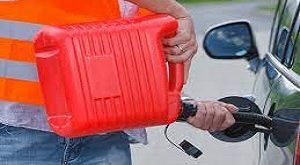As we get closer to the year 2023, there has been a growing interest in using electric generators as an alternative source of power. In a variety of situations, including sudden blackouts and outdoor activities, electric generators are a dependable and convenient way to power appliances and equipment. However, it can be challenging to select the appropriate generator among the numerous options available on the market. In this blog post, we will discuss what an electric generator is, how it works, its benefits and drawbacks, safety considerations when using one, and how to select the best one for your requirements. Make sure you buckle up as we begin our investigation of electric generators!
What is a generator for electricity?
A device that converts mechanical energy into electrical energy is known as an electric generator. Electromagnetic induction is the process by which a magnet rotates within a wire coil to generate voltage and current. The rotation can be powered by gasoline, diesel, or even wind turbines, among other things.
Depending on their intended use, electric generators can be found in a variety of sizes and types. Some are big enough to power entire communities or buildings, while others are small enough to power appliances during power outages or camping trips.
Homeowners love portable generators because they provide a back-up power source in the event of a power outage caused by a storm or other natural disaster. Standby generators, on the other hand, are permanently installed outside of homes and automatically activate during a power outage.
When electricity is most needed, electric generators make it easy to get it. However, as misuse can result in dangers like carbon monoxide poisoning or electrical shock accidents, it is essential to use them safely and correctly.
How electric generators work
Mechanical energy is transformed into electrical energy by electric generators. They work by utilizing an attractive field to prompt an electric flow in a wire circle, which is usually alluded to as the armature. The majority of electric generators operate on the fundamental principle that a coil of wire revolves around a magnet.
The lines of magnetic force created by the magnet are cut through by the rotating coil, causing an electric current to flow through the wire. This current can then be stored in batteries or used to power various electrical devices.
Most of the time, an external source like an engine or turbine drives a shaft that is connected to the rotor of the generator to make the coil turn. Through wires connected to output terminals, electricity is generated and disseminated as this rotor spins within its stator, the machine’s stationary component.
There are many different kinds of generators on the market today, each with a different efficiency and output capacity. Wind turbines, hydroelectric turbines, gas-powered generators, diesel-powered generators, and inverter-equipped solar panels are a few examples.
When you know how these machines work, you can make better decisions about which one is best for your needs and use it safely during operation.
Electric generators of many different kinds
There are many different kinds of electric generators, each with its own advantages and features. The portable generator is the most common type because it is portable and can be used for many different things. These generators have power outputs ranging from 800 watts to 17,500 watts and are typically powered by gas or propane.
The standby generator is another kind of electric generator that is usually permanently installed outside your house or business. Natural gas or propane can be used to power these generators, which are designed to automatically turn on in the event of a power outage. Because they are directly connected to your existing gas lines, standby generators don’t need to be refueled.
Another popular choice is an inverter generator, which makes use of cutting-edge electronics to generate stable, clean electricity that is safe for electronic devices like smartphones and laptops. In addition to being able to adjust the engine speed in response to the demands of the load, inverter generators are also more fuel-efficient than other kinds of electric generators.
Alternately, construction sites that require both welding machines and electrical power sources benefit greatly from welder/generator combos.
Several factors, such as the need for portability, the required wattage capacity, and whether it is intended for residential or commercial use, play a role in selecting the appropriate electric generator.
How to select the appropriate electric generator
With regards to picking the right electric generator, there are a few factors that you want to consider. You must first ascertain your power requirements. Choose a generator with sufficient capacity after calculating the wattage of each appliance or piece of equipment you want your generator to power.
The type of fuel is another important consideration when selecting an electric generator. Depending on availability and cost, you can select gasoline, diesel, or propane-powered generators in your area. Because it determines how long your generator will run before needing to be refueled, fuel efficiency should also be taken into consideration.
If mobility is a concern for you, the electric generator’s portability should also be taken into consideration. A smaller portable unit might be sufficient for outdoor activities like camping or tailgating.
Clamor level is another pivotal component particularly if utilizing the electric generator inside or around neighborhoods where commotion contamination guidelines apply.
If something goes wrong with your unit in the future, make sure to buy it from reputable brands and dealerships so that warranties and customer support are available.
Considerations to make prior to utilizing an electric generator
There are a few things to think about before using an electric generator to make sure it works right and is safe. First and foremost, it is essential to ascertain the power requirements of your appliances and equipment because this will assist you in selecting the appropriate generator size. The generator and your equipment could be damaged if you underestimate how much power you need.
Second, when it comes to fueling and maintaining the generator, you should always follow the manufacturer’s instructions. This includes changing the oil as necessary and regularly checking the level. Additionally, it is essential not to simultaneously overload the generator with too many devices.
Additionally, when using a portable generator, ensure that it is outside in a well-ventilated location away from gasoline cans and other flammable materials.
Children and pets should not be allowed near generators while they are running because they could inadvertently touch hot surfaces or exposed wires, which could result in serious harm or death.
When operating an electric generator, you will be able to do so safely and without causing harm if you take these considerations into account.
When using an electric generator, safety is of the utmost importance. Keep in mind that generators produce carbon monoxide, a potentially lethal gas with no color or odor. Because of this, the generator should always be placed outside in a well-ventilated area.
Make sure to carefully follow the instructions provided by the manufacturer when operating the electric generator. At all times, keep pets and children away from the machine. Even if the windows and doors are open, you should never use the generator inside your home or garage.
Refueling your generator while it is still running or hot is another safety tip. Permit it to chill off totally prior to adding more fuel.
When handling gasoline or diesel fuel for your electric generator, always wear eye protection and gloves.
Make it a habit to check your electric generator’s components on a regular basis for signs of wear and tear. Check for fraying or cracking on all cords, plugs, connections, and grounding wires.
When using an electric generator, you can ensure that you and your loved ones remain safe and have continuous power supply during emergencies by following these safety guidelines!
The advantages and disadvantages of using an electric generator Each type of generator has its own set of benefits and drawbacks. Before making a purchase, consider the following benefits and drawbacks:
Pros:
The provision of back-up power during power outages or other calamities is one of the main advantages of employing an electric generator. People who live in areas that are prone to natural disasters may particularly benefit from this. Because they are also portable, electric generators are simple to move from one location to another.
Another advantage is that electric generators offer a dependable source of electricity in far-flung areas where grid power might not be available. They are also suitable for outdoor pursuits like camping and tailgating.
Cons:
The cost of purchasing, fueling, and maintaining an electric generator is one major disadvantage. If generators aren’t kept in good working order or are used in places with poor ventilation, they can also release harmful emissions.
Additionally, they can be loud, which could disturb wildlife or neighbors in quiet areas. Due to fluctuations in voltage output, some generators may not be suitable for powering sensitive electronic equipment.
Before deciding whether or not an electric generator is the best option for your requirements, it is essential to weigh the advantages of using one against the potential disadvantages.








